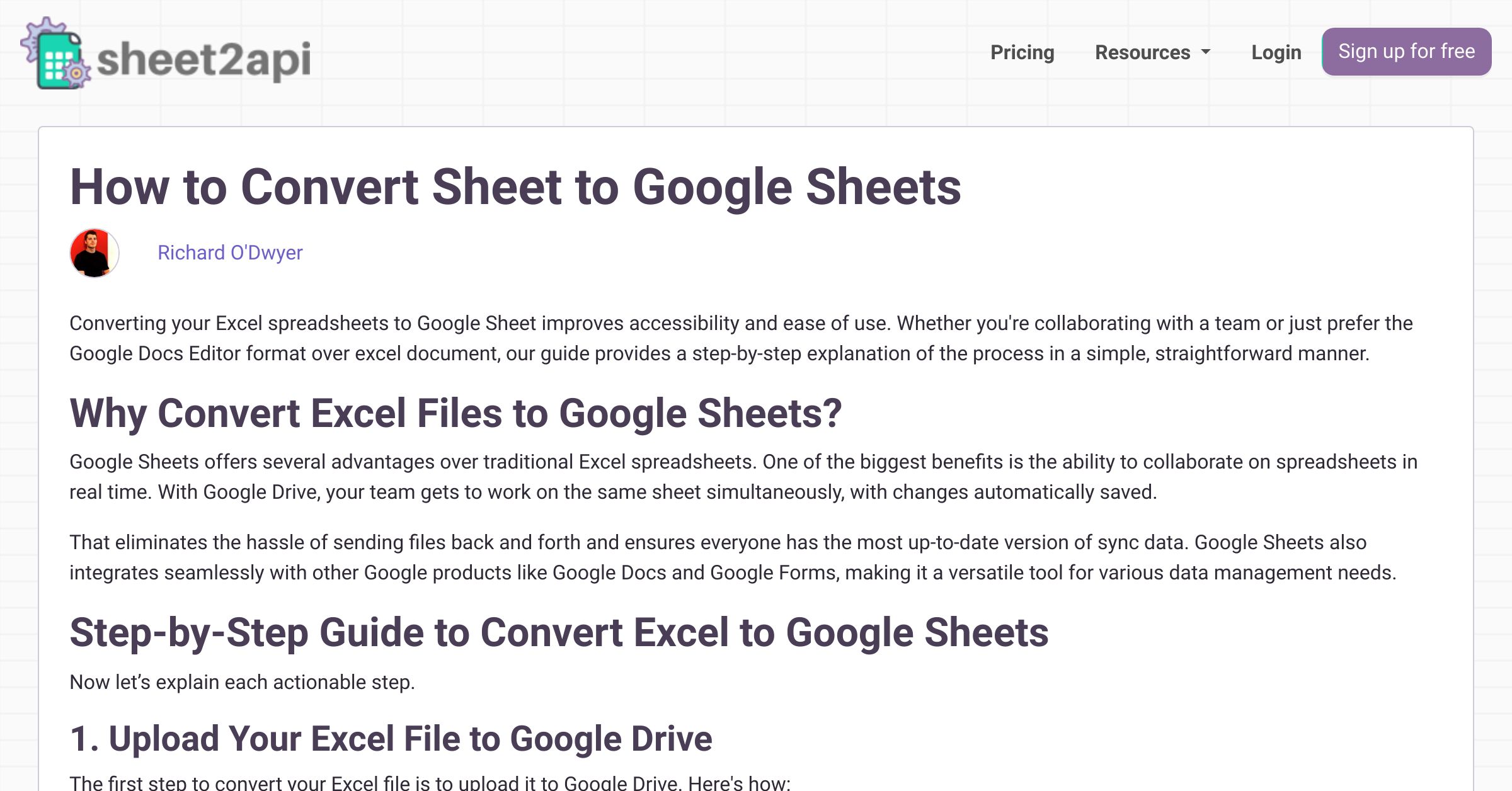Effortlessly Convert Excel Sheets to Word Documents

Many professionals, from business analysts to educators, often find themselves needing to transfer data from Excel spreadsheets to Word documents. Whether for reports, presentations, or simply to share data in a more accessible format, the process can be time-consuming if done manually. Fortunately, there are efficient methods to convert Excel files into Word documents seamlessly. Here, we'll explore various techniques to achieve this task effortlessly.
Why Convert Excel Sheets to Word Documents?

Before diving into the how, understanding the why is crucial:
- Readability: Word documents are easier for many to read and annotate compared to the grid-like structure of Excel.
- Formatting: You can add custom headers, footers, styles, and more in Word, which might not be as straightforward in Excel.
- Sharing: Word documents can be shared more universally as they don’t require specialized software to view.
- Integration: It’s easier to combine textual information from Word with Excel data for comprehensive reports.
Manual Conversion Process

The simplest, though most laborious method involves manually copying and pasting:
- Open your Excel File: Start with the Excel spreadsheet containing the data you need to convert.
- Select and Copy: Highlight the required cells or the entire worksheet if needed, and copy (Ctrl+C).
- Open a Word Document: Open a new or existing Word document where you want to insert the Excel data.
- Paste: Click where you want the data to appear in Word, then paste (Ctrl+V). You can choose “Paste Special” for more options.
- Formatting: Adjust the formatting in Word, ensuring tables or text fit correctly.
Using Excel’s Built-in Conversion Options

Excel offers some built-in tools to simplify the process:
- Convert to PDF: Excel allows you to save the file as a PDF, which can then be opened in Word to maintain all formatting.
- Insert Object: In Word, you can insert an entire Excel worksheet as an object, enabling live updates from Excel to Word.
| Option | Process | Result |
|---|---|---|
| Save As PDF | File > Save As > PDF > Open PDF in Word | Editable Word Document |
| Insert Object | Insert > Object > Excel Worksheet > Insert | Live-link Object |

⚠️ Note: When inserting an Excel object into Word, remember that the link between Excel and Word can break if the Excel file is moved or renamed.
Automated Software for Conversion

There are also third-party tools and applications designed to automate the conversion process:
- Excel to Word Converter Software: Some software like Able2Extract or CometDocs offers professional-grade conversion with more formatting options.
- Online Converters: Websites like Smallpdf, Convertio, or PDF2Go can convert Excel files to Word, though be cautious about data privacy.
Conversion via Programming Scripts

For those with programming knowledge, automating this process can save significant time:
- VBA: Use Visual Basic for Applications (VBA) in Excel to write macros that can export data directly to a Word document.
- Python: With libraries like
openpyxlfor Excel reading anddocxfor Word writing, you can create scripts to convert files.
Here’s a simple example of VBA code to illustrate:
Sub ExportExceltoWord()
Dim wdApp As Object
Set wdApp = CreateObject(“Word.Application”)
wdApp.Visible = True
wdApp.Documents.Add
Dim ws As Worksheet
Set ws = ThisWorkbook.Sheets(“Sheet1”)
ws.UsedRange.Copy
wdApp.Selection.Paste
wdApp.ActiveDocument.SaveAs “C:\Users\YourUsername\Desktop\ExportedFromExcel.docx”
wdApp.Quit
End SubOptimizing the Conversion for SEO

When writing content for conversion methods, SEO considerations are crucial:
- Use keywords naturally within the text, such as “Excel to Word conversion” or “how to convert Excel to Word”.
- Include long-tail keywords like “easy way to convert Excel data to Word” or “convert spreadsheet to document”.
- Create meta tags and use headings (H2, H3) to structure content for search engines.
- Include internal and external links relevant to the topic to increase domain authority and engagement.
📌 Note: Always ensure that your content is original and not copied from any existing sources to avoid SEO penalties.
In this guide, we've explored several methods to convert Excel files into Word documents, each suited for different needs and levels of expertise. Whether you're manually copying data, using Excel's built-in features, employing third-party software, or leveraging programming scripts, there's an efficient way to accomplish this task. By understanding the reasons for conversion, the various methods available, and optimizing for SEO, you can effortlessly transform your spreadsheets into well-formatted documents, thereby enhancing productivity and communication. Keep in mind the notes about preserving live links and ensure that any software or online service you choose handles your data securely.
What are the main benefits of converting Excel to Word?

+
Converting Excel to Word allows for easier reading, better formatting control, universal accessibility, and the ability to seamlessly integrate with other document types for comprehensive reports.
Can I keep my Excel formulas when converting to Word?

+
Unfortunately, once data is converted from Excel to Word, the formulas are no longer functional since Word does not interpret Excel formulas. However, you can manually embed Excel formulas as text or use the “Insert Object” feature to keep live Excel data in Word.
Is there a way to automate the conversion process without coding?

+
Yes, several third-party software solutions and online converters like Able2Extract, CometDocs, Smallpdf, or Convertio provide automated conversion options without needing to write code.



